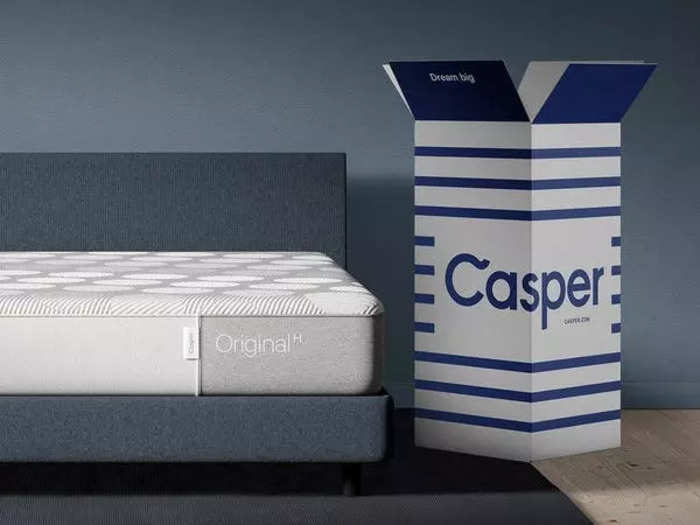Sharable electric scooters by Bird Rides, Inc. wait on downtown sidewalks for pedestrian use in 2019, in downtown Cincinnati.John Minchillo/AP
- Bird became the latest VC-backed startup showing signs of distress, after hinting at a potential bankruptcy this week.
- The company is among several former success stories struggling against competition and a tough economy.
It's been a tough year for startups.
Venture capital funding is drying up in a challenging economy, leaving many fledgling companies without the resources to get their businesses off the ground. Between the first and second quarter of this year alone, VC funding has plummeted 23% and its anticipated will hit the lowest level since 2020, according to data from CB Insights and reported by Bloomberg.
Meanwhile, VC-backed startup darlings of recent years — many of which held the vaunted $1 billion valuation unicorn status — are suddenly unable to keep their heads above water. A growing number of these early success stories are retreating after filing disappointing initial public offerings, turning back to private equity firms in an attempt stay afloat.
Here's a look at four of the biggest VC-supported startups that went public and crashed in recent years.
Blue Apron
A sample meal from Blue Apron Blue Apron
In the decade since its founding, Blue Apron has helped bring busy Americans a new and convenient way to get dinner on the table.
Founded in 2012, the meal-kit company exploded in popularity thanks to its boxes of prepackaged ingredients and easy-to-follow recipes, shipped directly to your door.
However, by the time Blue Apron went public in 2017, its market debut proved underwhelming, as grocery delivery competition began heating up. As companies like Instacart and Amazon Fresh began taking market share, Blue Apron started to lose its luster.
Though the company saw a boom early in the pandemic — as homebound Americans sought out food delivery services and attempted to avoid brick-and-mortar spaces to prevent spreading COVID-19 — sales dwindled again as social distancing measures lessened.
In November 2022, shares of the company plummeted after the company announced it was trying to secure $56.5 million in funding from an investor in response to falling revenue. The company reported in its most recent earnings report that revenues dropped by 12% to 110 million compared to the same period the year before, and that it is seeking ways to cut costs.
Casper Sleep
Casper Casper
An early success story in the direct-to-consumer revolution, Casper Sleep's "mattress-in-a-box" business quickly became known as a model disruptor, securing the hallowed unicorn status with a $1.1 billion valuation in 2019.
However, Casper made a disappointing debut in its initial public offering, hitting the market with a valuation of just $575 million a year later.
In the following months, the company started to struggle against rising competition in the sleep industry. Less that two years after its IPO — amid waning sales and solvency difficulties — the mattress-in-a-box company announced in November 2021 that it would go private, in a deal with private equity firm Durational Capital Management.
Bird
Sharable electric scooters by Bird Rides, Inc. wait on downtown sidewalks for pedestrian use in 2019, in downtown Cincinnati. John Minchillo/AP
Electric scooter rental startup Bird announced on Nov. 14 that the company is in danger of bankruptcy if it doesn't secure additional funding in the next 12 months.
The company wrote in a filing with the Securities Exchange Commission that it may "need to scale back, or discontinue certain or all of its operations in order to reduce costs or seek bankruptcy protection."
The news came after the company disclosed it previously overstated revenue by erroneously recognizing unpaid customer rides. According to the Financial Times, the glitch led users to take rides without having adequate funds in their prepaid digital wallets, prompting the company to misreport an estimated $31.6 million over the course of two and half years.
Bird — founded in Miami in 2017 by Travis VanderZanden, an executive at Uber and Lyft — quickly exploded into a startup darling. The company took off thanks to the rental scooter boom, and by 2018, the company became the fastest ever to reach a unicorn valuation of $1 billion.
The company's success continued, leading into filing its initial public offering in 2021. However, trouble began brewing in the months after the company went public. In June 2022, Bird laid off 23% of its staff.
Also this year, the New York Stock Exchange issued a warning to the company for trading low, and shortly after it pulled business from Sweden, Norway, and Germany, as well as several cities in the US, TechCrunch reported.
WeWork
Reuters
WeWork has become a cautionary tale of the startup star and business mogul who got too big for their britches.
In the span of just six weeks in 2019, the coworking space giant imploded in one of the most infamous examples of an overly ambitious startup gone awry, after the company's attempt to file an initial public offering immediately crashed and burned.
The filing prompted scrutiny from investors, who were concerned about CEO Adam Neumann's business plan (and later, many examples of his troubling and inappropriate behavior) and unclear path to profitability.
WeWork opted to withdraw and indefinitely delay its IPO, while Neumann stepped down from his role as CEO.
The company received emergency funding from SoftBank, and worked on regaining its footing, ultimately reaching a deal to go public via a special purpose acquisition company in March 2021 at a valuation of $9 billion — a far cry from its previous valuation of $47 billion.




